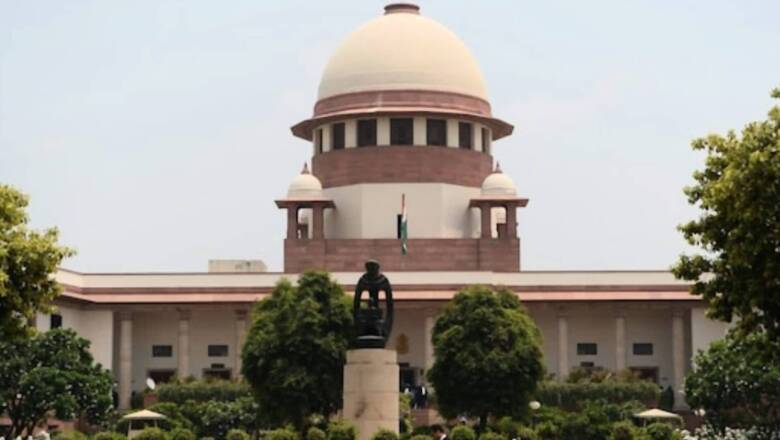
views
Supreme Court on Friday upheld provisions of the Insolvency and Bankruptcy Code (IBC) allowing lenders to pursue insolvency proceedings against promoter guarantors of companies facing Corporate Insolvency Resolution Process. A bench of Justices L Nageswara Rao and Ravindra Bhat delivered the judgement. The ruling would allow banks to file personal bankruptcies against guarantors, even when the insolvency of firms is yet to be resolved.
During the hearing, Justice Ravindra Bhat said that,”The approval of resolution plan relating to the corporate debtor does not operate so as to discharge the liabilities of the personal guarantor. Writ petitions dismissed without cost,” reported Bar & Bench.
In 2019, the Centre introduced a new provision in Insolvency and Bankruptcy Code, 2016, that allowed the banks to move an application for initiation of insolvency against personal guarantors to corporate debtors. The intention was to hold the promoters of the defaulter companies who had furnished personal guarantees for the loans taken by their firms, liable. Following the provisions, the lenders filed bankruptcy cases against India’s top business tycoons including Anil Ambani, Kapil Wadhawan and Sanjay Singal.
The new provisions were challenged by many promoters before different high courts, claiming that the promoters alone should not be held liable for the default on debt repayment. In October, 2021, the apex court transferred to itself a batch of writ petitions pending before different high courts challenging the provisions of IBC with regard to personal insolvency.
“In the light of the Supreme Court upholding the provisions of Insolvency and Bankruptcy Code, the creditors are no longer compelled to pursue traditional routes to enforce their claims, thereby strengthening the rights of the creditors to initiate concurrent insolvency proceedings against the corporate debtor and personal guarantors. The personal guarantors who are invariably promoters shall be liable for their flawed decisions,” explained Abhay Itagi, principal associate at law firm MV Kini.
“The Supreme Court has reiterated the legal position that once a resolution plan approved by the Committee of Creditors, takes effect, it is binding on the guarantor and for this reason a guarantor cannot escape its payment obligations as per the resolution plan,” said Girish Rawat, partner, L&L Partners.
“It is imperative to mention that the Supreme Court had earlier held that the successful resolution applicant takes over the corporate debtor on a fresh slate and can not be burdened with undecided claims after the resolution plans takes effect, thus, effectively slamming the door on the subrogation right of the guarantor,” he further explained.
“The Supreme also held that Sections 95, 96, 99, 100, 101 of the IBC are valid and shall apply to personal guarantors of corporate debtors. This judgment will help the lenders and will create a trouble for the promoters who are involved as personal guarantors on the loan,” said Raj Bhalla, partner at law firm MV Kini.
Read all the Latest News, Breaking News and Coronavirus News here. Follow us on Facebook, Twitter and Telegram.

















Comments
0 comment